From arras.io, we see fundamentals of human socialization. Children often have the same innate feelings as adults.
Clan Wars
Tanks can join a team and battle against other clans. Most people join one of the large clans that always seems to exist such as base or KPK. These people usually tend to be noobs that require protection in numbers. However, their clan is not coordinated and cannot easily destroy other teams.
But what is interesting is that technology allows players to duplicate themselves, such as the COOKER clan, which is all one person.
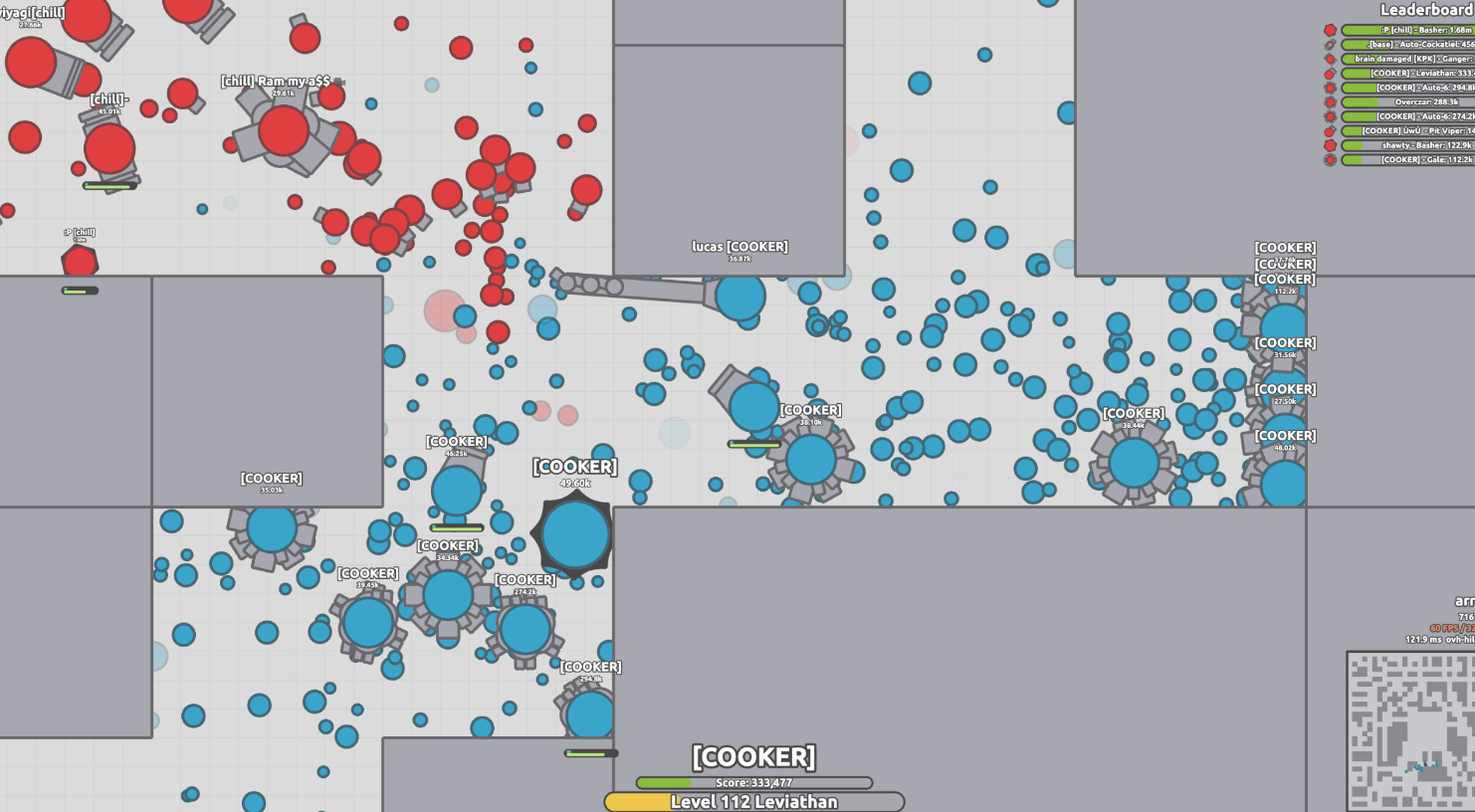
In society people group together to protect themselves but coordination costs arise. Will we see a one-person hegemon enabled by technology in the future?
Types of Players
- Noobs (easily killed and destroyed)
- Medium Skill
- High Skill
- Multiboxers, script writers, simply skilled at a certain tank
- Pets (somehow enjoy being ‘pets’ to others, like a jester)
In every game (Habbo Hotel, Transformice, Minecraft, etc.) I’ve played, there have always been a select group of skilled minigame players. I’d estimate it to be at around 5-10% of the population. Most other people do not have the performance mindset and prefer chatting with others. I suspect this generalizes to real life.
Servility and Independence
Some players are servile and always join the clan that is leading, as they know they are weak and want to feel part of something strong.
Other players are independent and will not join a noob clan such as base or KPK.
Naturally, any strong clan attracts noobs because they get shown in the leaderboard. Which leads to the downfall of the clan. Clans such as base have too much past inertia to ever completely disappear.
Chill or Kill
Players often say one of two things: peace or chill. The latter are strong players who choose to be peaceful and the former are weak players who might also say things like “plz no kill.”
Point Collectors and Killers
Some people tend to value having a high score. They are defensive players who care about their “number.” In real life, there might be people who are attached to their prestige, money, fame, or whatever other factor them deem important.
Then there are offensive players which simply care about killing as many other tanks as possible.
Some people value creating a base and staying in one place. Others value destroying it. Building is much more common than destroying, where the latter consists of a raiding clan like A-C that requires high coordination.
High Skill Gamemodes
Arms race vs regular gamemodes. Arms race has more variation in weapons. High skill gamemodes allow for skill expression. There is kind of a ‘natural selection’ and ‘diversity’ where certain tanks are good against other tanks. Auto-Cockatiel is a fast and high-damage tank often used by skilled players.
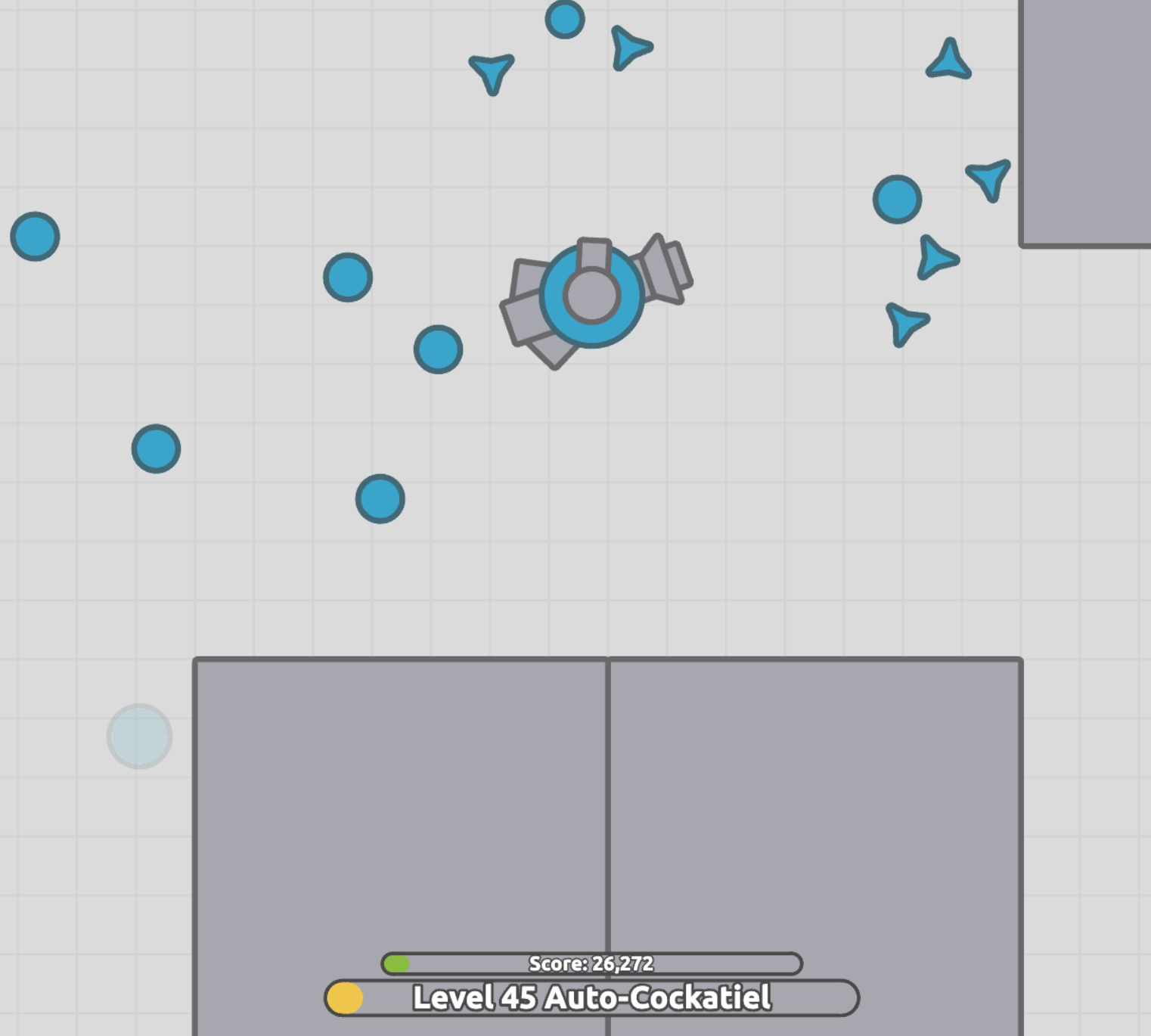
In regular gamemode, most tanks are all kind of weak, so it ends up one giant noodle fight. If you are skilled, pick high-skill gamemodes.
When weapons are of the “amateur” type of 1880, as they were in Greece in the fifth century B.C., they are widely possessed hy citizens, power is similarly dispersed, and no minority can compel the majority to yield to its will. With such an “amateur weapons system” (if other conditions are not totally unfavorable), we are likely to find majority rule and a relatively democratic political system. But, on the contrary, when a period can be dominated by complex and expensive weapons that only a few persons can afford to possess or can learn to use, we have a situation where the minority who control such “specialist” weapons can dominate the majority who lack them. In such a society, sooner or later, an authoritarian political system that reflects the inequality in control of weapons will he established.
Quigley states that democracy rules when weapons are similar. Based on Arras’s regular game-mode, we see this is true (any player can dispatch any other unruly player).
Given that the internet increases variance and the world is so complex, the questions that should be asked are:
- How can we appease the strong and form alliances with them?
- How can we make sure we are not on the losing side?
- Is a mad scramble for power and ability necessary? Or can people live their own lives, unaffected by what goes on around them?
Winning in an existing world
“Growth” mode allows one to further upgrade their tank as they increase in score, making them stronger. I rarely see the highest skilled players in growth mode as this mode simply values persistence. Or do I not see skill because it is hard to have any skill in such a gamemode? It tends to be dominated by lower skilled players who have been playing the game a long time and have farmed their way into a big tank, making it near impossible for newcomers to defeat them regardless of their skill level.
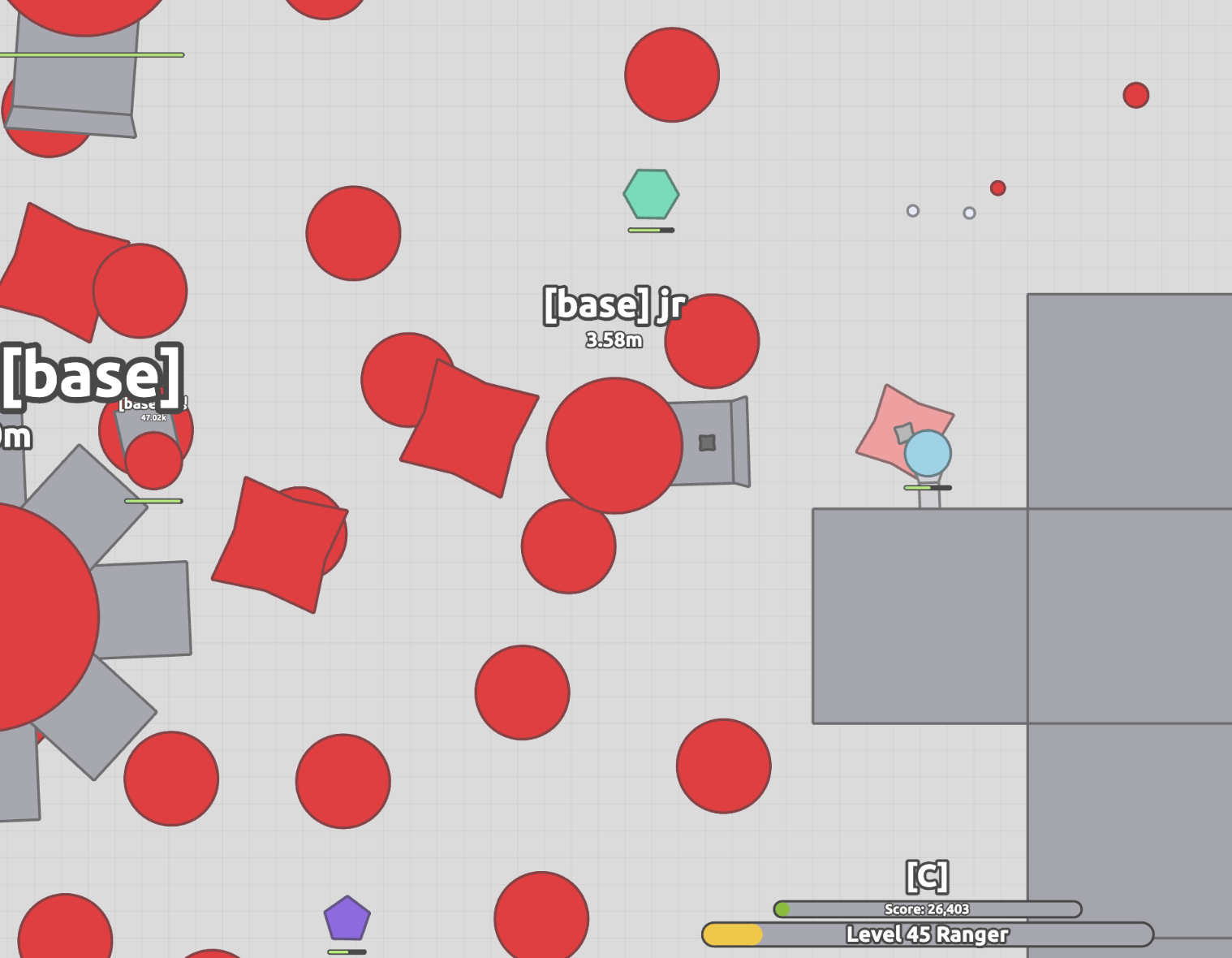
While a skilled player could also compete in growth mode, it requires patience and planning and it’s easy to get crushed no matter how good you are. The tradeoff is not as immediate as when they go to a place where they can quickly dominate due to their skill.
If you’re the biggest in a clan, other players are more likely to follow you.
Arms Race Manhunt
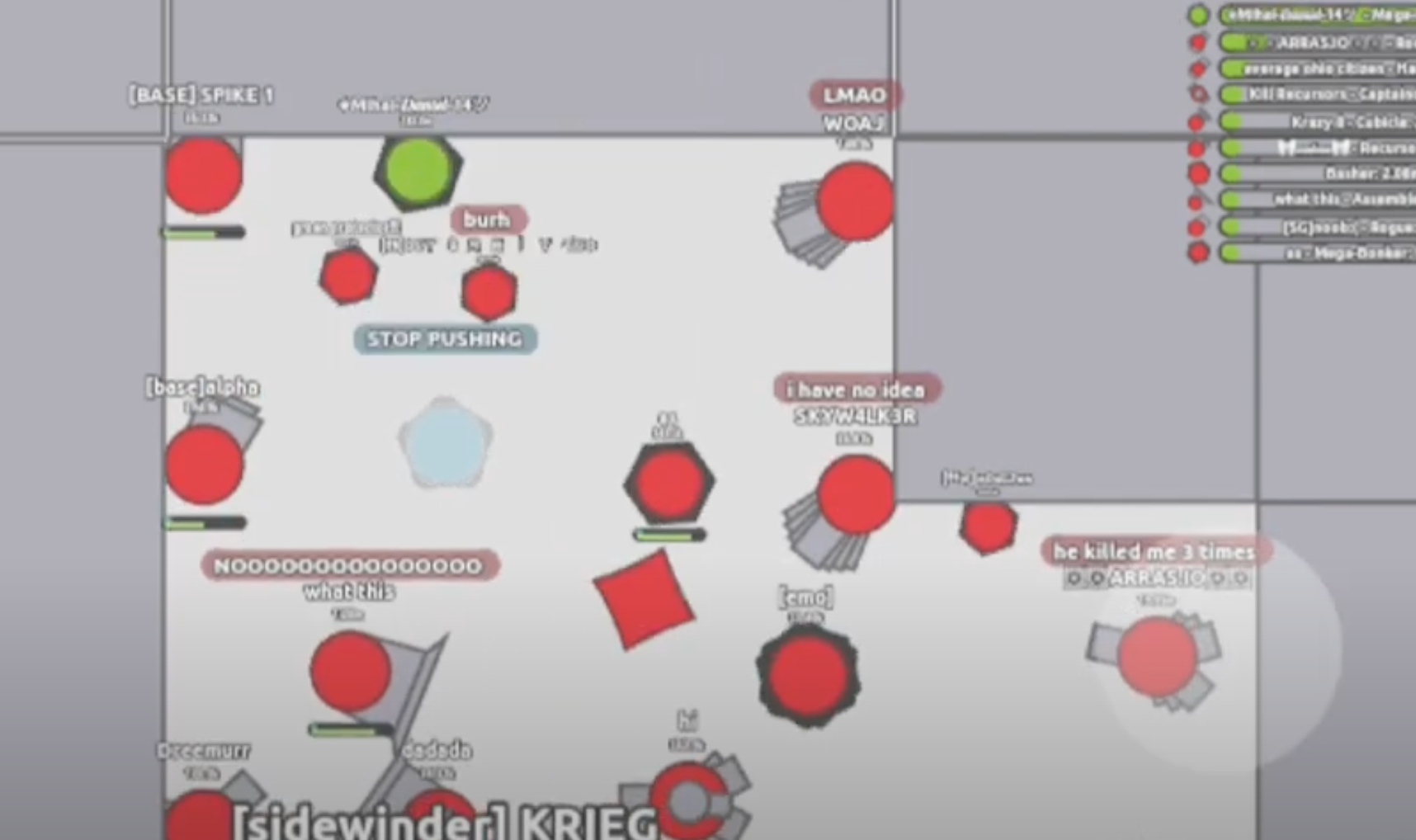
Green represents the leader, who has stronger stats. In these situations there are not many people who will try to usurp the leader. A lot of them just fall in line and camp in the base. It is easy for a small group of people to control the entire base without much resistance.
From this I see that two principles are true: a lack of hierarchy leads to anarchy and infighting as people fight to become the next leader. Second, that replacing the leader in a revolution often inspires revolt against you because people are familiar with the existing leader and have group feelings and affections for them.
The leader can usually kill newcomers and a few other players as long as they don’t start trying to kill everybody. And if they say something in the chat to make others think that the killed deserved it, they can easily maintain their power for a long time.
People will still form groups in a gamemode such as Maze and hang out if everyone is equal, but it’s hard for people to control and exploit others if there is not inequality. Since there are factors that put one human above another, the perennial human question is what to do about that fact.
The developer implemented something to stop this “basing” in Arms Race Manhunt. They tried to force their own vision onto what a gamemode should be rather than understanding emergent nature and the tribal nature of humans.
Sometimes for the sake of peace, it is better to have a weak leader that everyone keeps in place as a patsy than many strong people fighting over it.
The Balance of Powers in the Continential Dilemma
Britain as a naval power stood apart from Europe and could choose to put its forces wherever it so chose, nudging just a little to great effect. Continential powers had to maintain their full forces against all others on the continent.
There is no moment where you are more reminded of this than shooting full force at someone in arras.io only to have some noob’s whimsy seal the fate of such a fight. The solution has always been to escape into a corridor and disengaging an unbalanced system, or to somehow seal off yourself and the enemy. You can’t defeat a group, but you can sequentially.
Dynamical systems
I’ve been thinking about how given varying stages of life and different beginnings, people evolve toward similar defined outcomes. In dynamics, an attractor is a set of states toward which a system tends to evolve. You look not at the individual but the overall behavior.
In the below game in arras.io, green represents the enemy team and blue represents the attacking team. A player might concentrate on the battle in front of them and have a lot of fun. Yet when looking at the overall map, we see that most squares are near impossible to defend save the last green one in the corner. I can predict the result of the game based on the numbers of each side; it’s like a tug-of-war where green cannot win, and it is just a matter of time until most the players in green leave and blue wins.
Grand Strategy over Operational Strategy. Knowing when you’re checkmated.
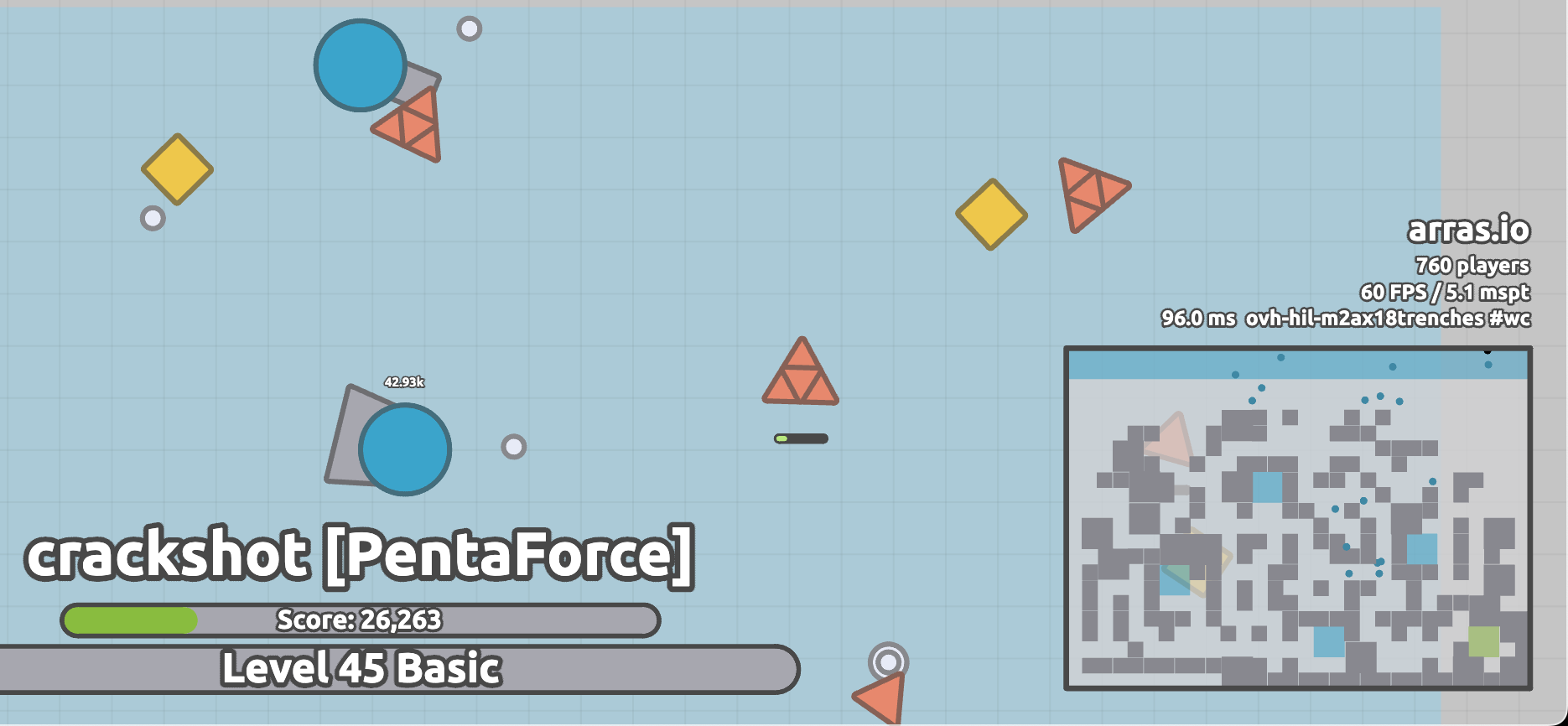
If you can see the result, what’s the point of playing?
In people, there are at times exceptions. A person who looks like a party dude may not like alcohol because of his parents’ experience with a drunk driver. But for the most part, I wonder if it’s possible to create a finite set of attractors that represent certain personalities and their mode of interaction, beliefs, and behaviors. I see certain paths that high school classmates go down with little surprise.
Even in college, I had a general sense of someone’s competence and where they would end up from only meeting them for a short period of time, but there have been surprises. People who I thought would get somewhere but didn’t. And people I felt were stupid but still seem conventionally successful.
It’s a tough question. Are people individuals or prototypes? People like to think they are individuals, but with how many people there are, there are sure to be repeats. And what’s the point of playing a game if the other party is predictable?
Going a solo direction
I exhibit a behavior in both video games and real life where I seem to split off from the rest of the group in hopes of finding a better or faster route.
Examples are not choosing to walk with the crowd on New Year’s Eve but rather to step back and view the direction of the crowd from afar. In a video game I may see what people are doing is futile, yet I have no way to convince the crowd to move.
May be related to Probability Matching in populations and their behavior.
Some conclusions:
I’m sure there are more takeaways than just this.
- If your clan becomes well known, it will attract bad and weak people attracted to prestige
- Coordination costs are significant
- Even if you are the ‘leader’ of a group, it is annoying to lead people who don’t have the same understanding
- Noobs gravitate toward large clans and entrenched players because they need it to feel powerful
- High skilled players don’t make full use of their ability in low-skill (low dimension) environments or entrenched environments. Q: Would ‘making it’ in an entrenched environment make it almost impossible to dislodge a high-skilled player?
- Certain people are independent, others are weak and servile. The latter is hard to destroy if they are entrenched or in a large group. Weakness of independent high-skill players is that they don’t form groups because of how easy it is for them to be skilled alone
- Look at the map and the direction, not at the individual actions
Killing Sprees
In two games I played: Minecraft Mineplex Domination and Tanki Online, some classes and builds were vampiric upon life itself. Certain champions in League of Legends were also this way. The killing of others would increase one’s own vitality.
It’s easy to see how the local environment one is in shapes the incentives for behavior. My understanding is that slaving used to be more economically productive.
Communication used to be hard. Now it is easy. Alignment and coordination are hard. Building is hard.
The Rise and Fall of Dynasties
People on the outskirts fight together with strong group feeling, eventually overtaking the previous dynasty and making it to the center.
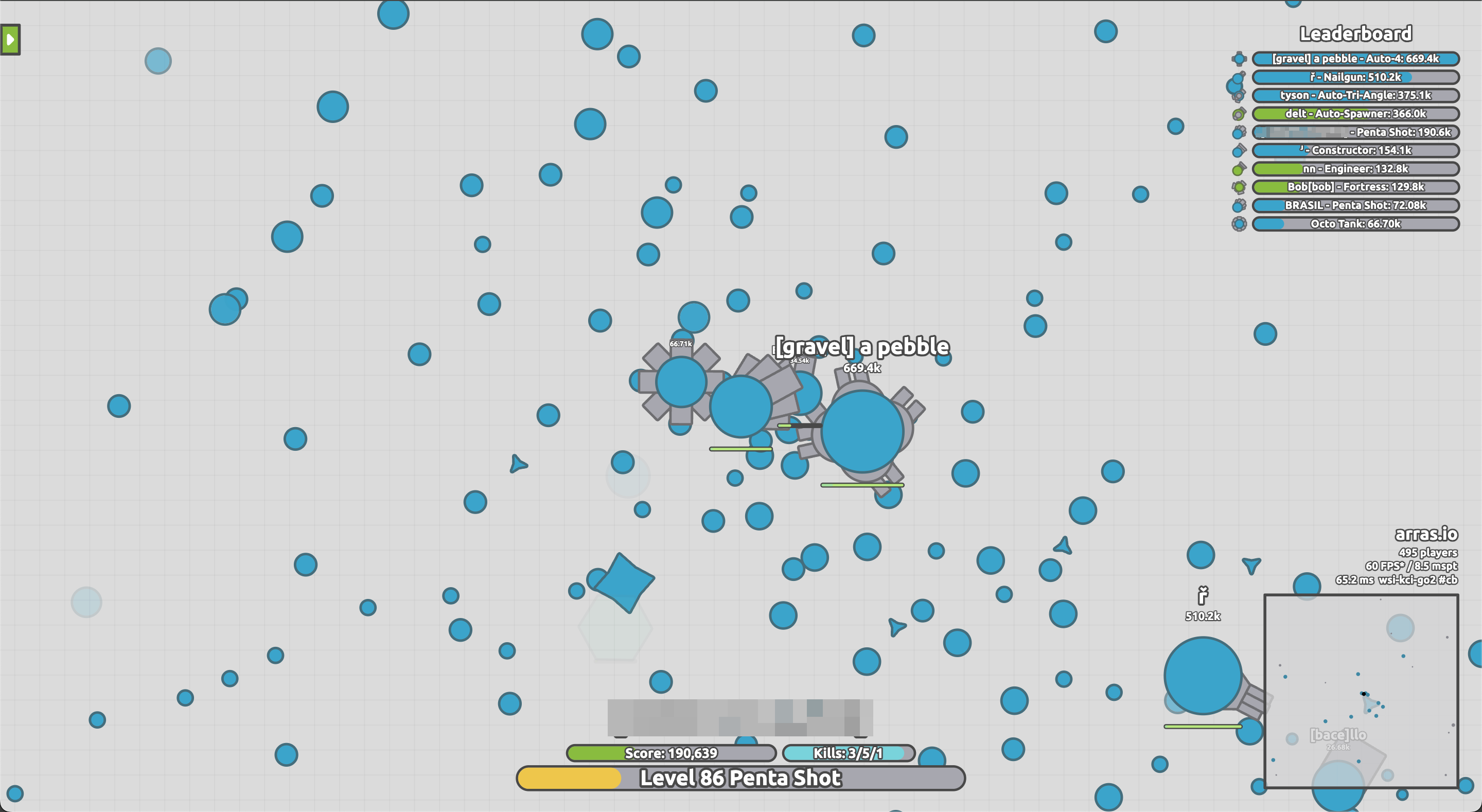
Separatist movements form on the corner of the map that the core has to dispatch.
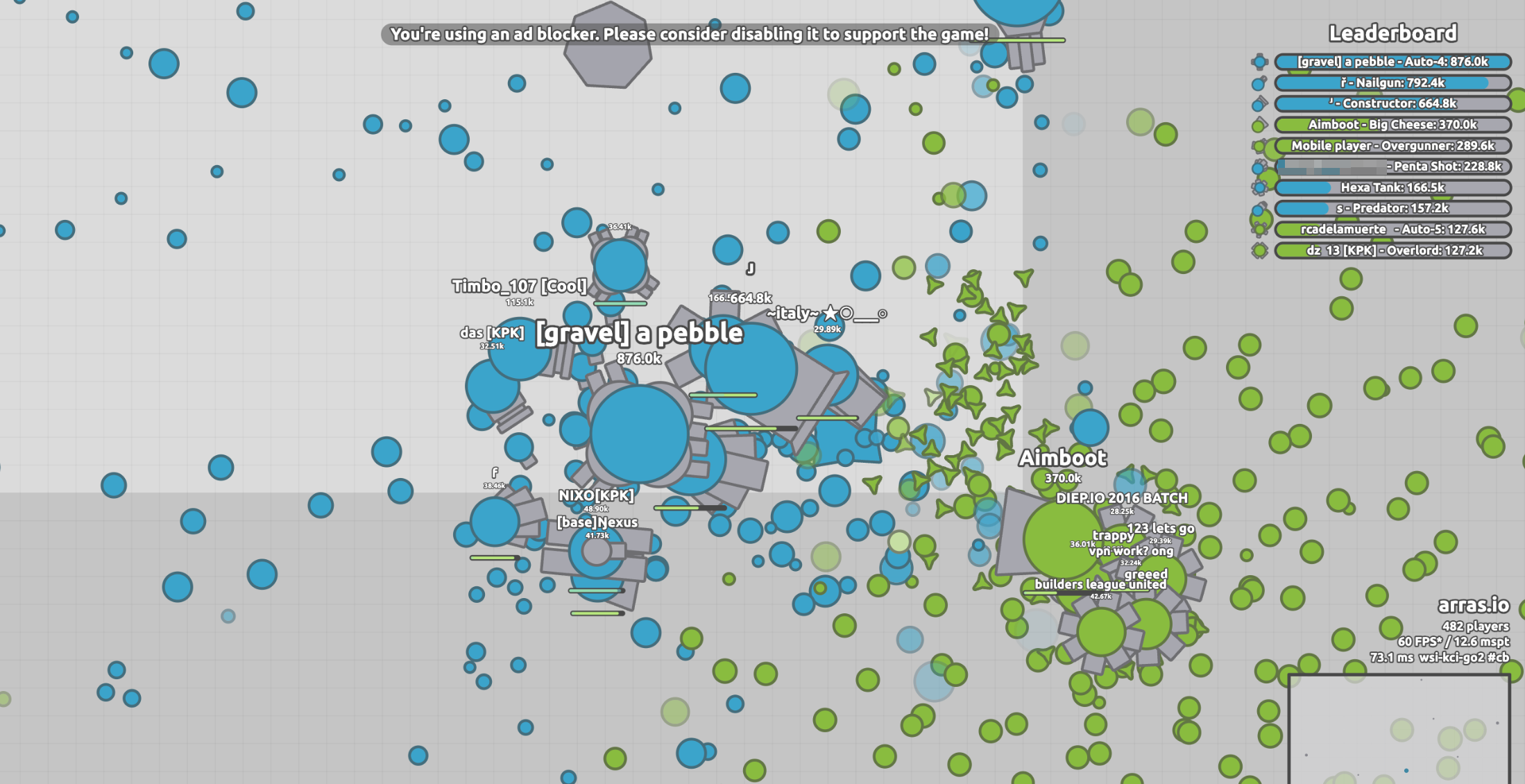
Natural Selection
Based on the environment, certain types of tanks may become more common because of their effectiveness in dispatching other tanks. Since tanks in this gamemode can grow yet a maze constrains people’s movement, this giant bullet tank is effective.
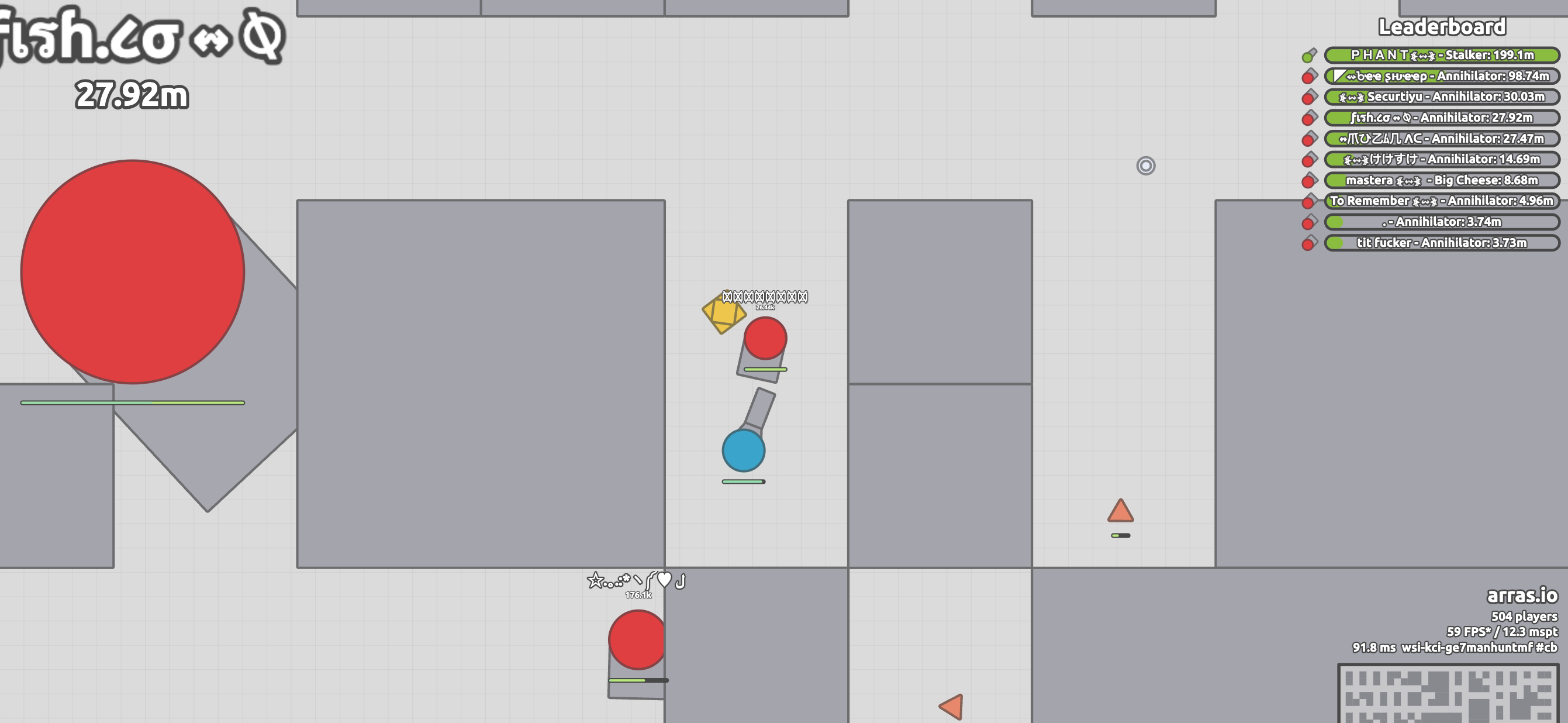
This brings the question: what type of behavior is most effective at accumulating resources given the modern economy?
Allies are made if and only if there are mutual complements
In one game I played a while ago, I played a ranged tank while another person played a close-range tank that could protect me. Though we had not started out as a team, our mutual complement gave us strength over other players.
From this we can see that those with complementary interests group together like symbiotic organisms
The inverse also seems to hold: other tanks that were the same tank as me, even if they wanted to ally, represented a poor fit because of how easily they could kill me from afar being of the same type of tank. Thus man faced with tiger does not assume it understands logic and reason; one must act before the other.